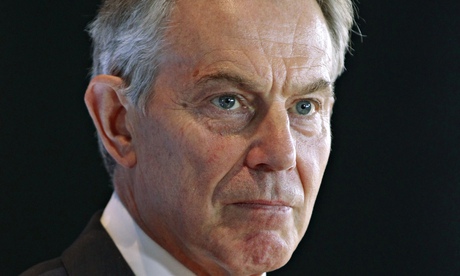Rights groups says move to indict 20 employees of news channel marks escalation in state's campaign against foreign media
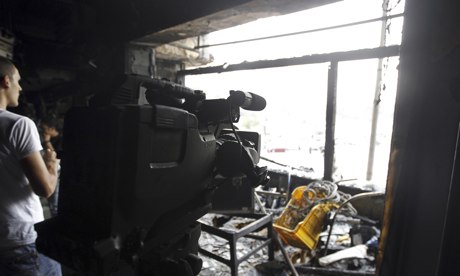
Al-Jazeera's Cario studio after it was set ablaze in November. Sixteen of its journalist are accused of belonging to the Muslim Brotherhood. Photograph: Mohamed Abd El Ghany/Reuters
Egyptian prosecutors say they will charge 20 al-Jazeera journalists, including two Britons, an Australian and a Dutch citizen, with fabricating news and tarnishing Egypt's reputation abroad. The 16 local defendants are also accused of belonging to former president Mohamed Morsi's now-banned Muslim Brotherhood.
The journalists include the Australian former BBC correspondent Peter Greste, and the al-Jazeera's Canadian-Egyptian bureau chief Mohamed Fahmy, who has worked for CNN and the New York Times. The identities of the other defendants, including the two Britons, are not stated, and some of them are understood to have been accused in absentia.
In a statement, prosecutors said the defendants aimed "to weaken the state's status, harming the national interest of the country, disturbing public security, instilling fear among the people, causing damage to the public interest, and possession of communication, filming, broadcast, video transmission without permit from the concerned authorities".
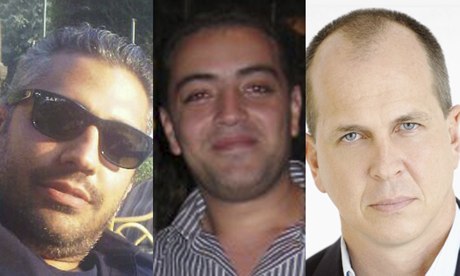 Al-Jazeera's Mohamed Fahmy, left, Baher Mohamed, centre, and Peter Greste were arrested in Decemver during a raid on a makeshift office suite in Cairo's Marriott hotel.
Al-Jazeera's Mohamed Fahmy, left, Baher Mohamed, centre, and Peter Greste were arrested in Decemver during a raid on a makeshift office suite in Cairo's Marriott hotel.
Officials, who wanted to remain anonymous, also claimed the US news network CNN had broadcast al-Jazeera's reporting in an effort "to distort Egypt's international reputation", though this allegation was not repeated in any official document.
Rights advocates said the charges mark a serious escalation in the Egyptian state's campaign against foreign media. The government's supporters claim international news outlets are biased in their reporting of human rights abuses against Morsi supporters and secular dissenters – and accuse overseas outlets of working in the Brotherhood's interests.
Al-Jazeera has received by far the fiercest criticism because its owner, Qatar, is considered sympathetic to the Brotherhood. The broadcaster's Arabic-language stations are considered particularly biased by the Egyptian government.
Conflicts between al-Jazeera and the Egyptian authorities after the Brotherhood's overthrow in July forced the broadcaster to shut the offices of its Arabic and English divisions, and its employees to operate without accreditation – one of several charges laid against the journalists on Wednesday.
"This case is part of a violent campaign against the freedom of expression and journalism that we have never witnessed before, except during the dying days of the Mubarak regime, from October to December 2010," said Gamal Eid, a leading Egyptian rights lawyer, and head of the Arabic Network for Human Rights Information (ANHRI).
"This is taking legitimate journalists' work and calling it terrorism," said Sherif Mansour, Middle East director for the Committee for the Protection of Journalists. "That's the biggest distortion of Egypt's image abroad – not the reporting the journalists were doing."
The charges would have a chilling effect on the work of journalists in Egypt, according to Khaled Mansour, the head of a leading local rights watchdog, the Egyptian Initiative for Personal Rights (EIPR).
"I have a very strong concern now for journalists, especially foreign journalists, who are trying very hard to create a balanced picture of what is going on in this country," he said. "The work of a journalist involves going to dangerous places and interviewing outlaws. But if I were a journalist in this country, I would now be very frightened of talking to the Muslim Brotherhood – even though they are an important part of the story.
"This will really have a very chilling effect on the work of journalists – and I would hope this government will make a distinction between a journalist doing their job and meeting people, and the charges that have been filed."
The Telegraph commentator Peter Oborne also condemned the journalists' treatment at an event in London. More than 40 international and Egypt-focused journalists – including CNN's Christine Amanpour and the BBC's Jeremy Bowen – signed a joint letter on the same subject two weeks ago.
Lawyers were unclear about whether charges referred to members of al-Jazeera's Arabic channel who were arrested in August, or just al-Jazeera English journalists seized several months later. Al-Jazeera English's Greste, Fahmy, and local producer Baher Mohamed have been detained since late December after state security officials raided their informal base in the Marriott, a hotel in central Cairo. In local media – whose coverage is highly skewed towards the government – state officials have described the trio as "the Marriott terror cell".
In a recent letter from prison, Greste called their incarceration "an attack not just on me and my two colleagues but on freedom of speech across Egypt".
Greste has been placed in a better-kept cell, but Fahmy has been denied medical treatment for a dislocated shoulder, which was injured shortly before his arrest. Fahmy and Mohamed are in a high-security prison reserved for suspected terrorists. They spend "24 hours a day in their mosquito-infested cells, sleeping on the floor with no books or writing materials to break the soul-destroying tedium", according to Greste.
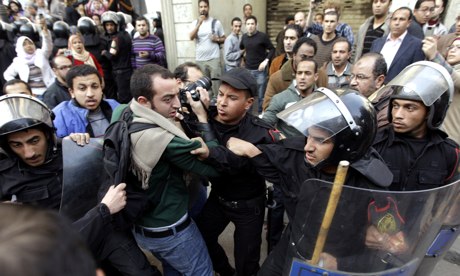 Egyptian riot police block a photojournalist outside the offices of the Journalists' Syndicate in Cairo. Photograph: Ben Curtis/AP
Egyptian riot police block a photojournalist outside the offices of the Journalists' Syndicate in Cairo. Photograph: Ben Curtis/AP
Abdullah Elshamy, one of the al-Jazeera Arabic journalists detained without charge since August, has been on hunger-strike for nine days to draw attention to his plight. "I do not belong to any group or ideology, I belong to my conscience and my humanity," he said in a letter from prison on Monday.
"Even though the other journalists have been accused unjustly, at least they are going to be able to defend themselves," his brother Mosa'ab Elshamy, an acclaimed photographer, told the Guardian. "Abdullah hasn't even been given that right – and his case is even more backward than the one referred today."
The fate of their younger brother is indicative of the harsh conditions facing journalists in Egypt. Mohamed Elshamy was arrested at a police checkpoint on Tuesday because his camera contained images of a protest. He was later released.
"It is not only that the violence has made it almost impossible to take close-up pictures at protests," said Mosa'ab Elshamy, "but it has become difficult to even carry a camera in the street."
Being detained by police or threatened by mobs is a common experience for journalists – and especially photographers – when reporting near large crowds. One German crew was reportedly hospitalised last Friday after a particularly vicious attack near the site of a bomb explosion.
The Committee to Protect Journalists has documented at least 24 abuses against members of the media in Egypt since Saturday. It says the level of attacks on and detentions of journalists in the months after Morsi's overthrow was unprecedented in Egypt's history.
Anger at foreign media is high among certain sections of the population who see Egypt as being on the path to democracy, and who link the Brotherhood to terrorist acts committed by extremist groups.
oOne pro-government supporter, Ali Abdel Samer, a shopkeeper, said: "All the foreign media is just saying things from the Brotherhood's side."
The Guardian has come under express criticism from Egypt's presidency.
Mounir Fakhry Abdel Nour, a cabinet minister, told correspondents last week: "The international media has not assessed the facts in Egypt as we see it here."
Australian journalist Peter Greste, who is being held in Cairo's Tora prison. Photograph: AAP

 Al-Jazeera's Mohamed Fahmy, left, Baher Mohamed, centre, and Peter Greste were arrested in Decemver during a raid on a makeshift office suite in Cairo's Marriott hotel.
Al-Jazeera's Mohamed Fahmy, left, Baher Mohamed, centre, and Peter Greste were arrested in Decemver during a raid on a makeshift office suite in Cairo's Marriott hotel.  Egyptian riot police block a photojournalist outside the offices of the Journalists' Syndicate in Cairo. Photograph: Ben Curtis/AP
Egyptian riot police block a photojournalist outside the offices of the Journalists' Syndicate in Cairo. Photograph: Ben Curtis/AP 

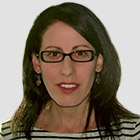
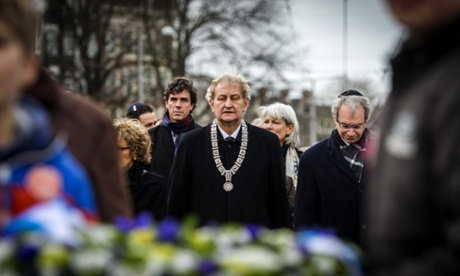 Amsterdam Mayor Eberhard van der Laan visits the Auschwitz monument in the Wertheimpark in Amsterdam. Photograph: Remko De Waal/EPA
Amsterdam Mayor Eberhard van der Laan visits the Auschwitz monument in the Wertheimpark in Amsterdam. Photograph: Remko De Waal/EPA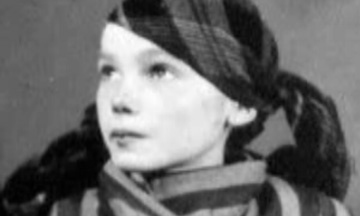 Czesława Kwoka. Photograph:
Czesława Kwoka. Photograph: 